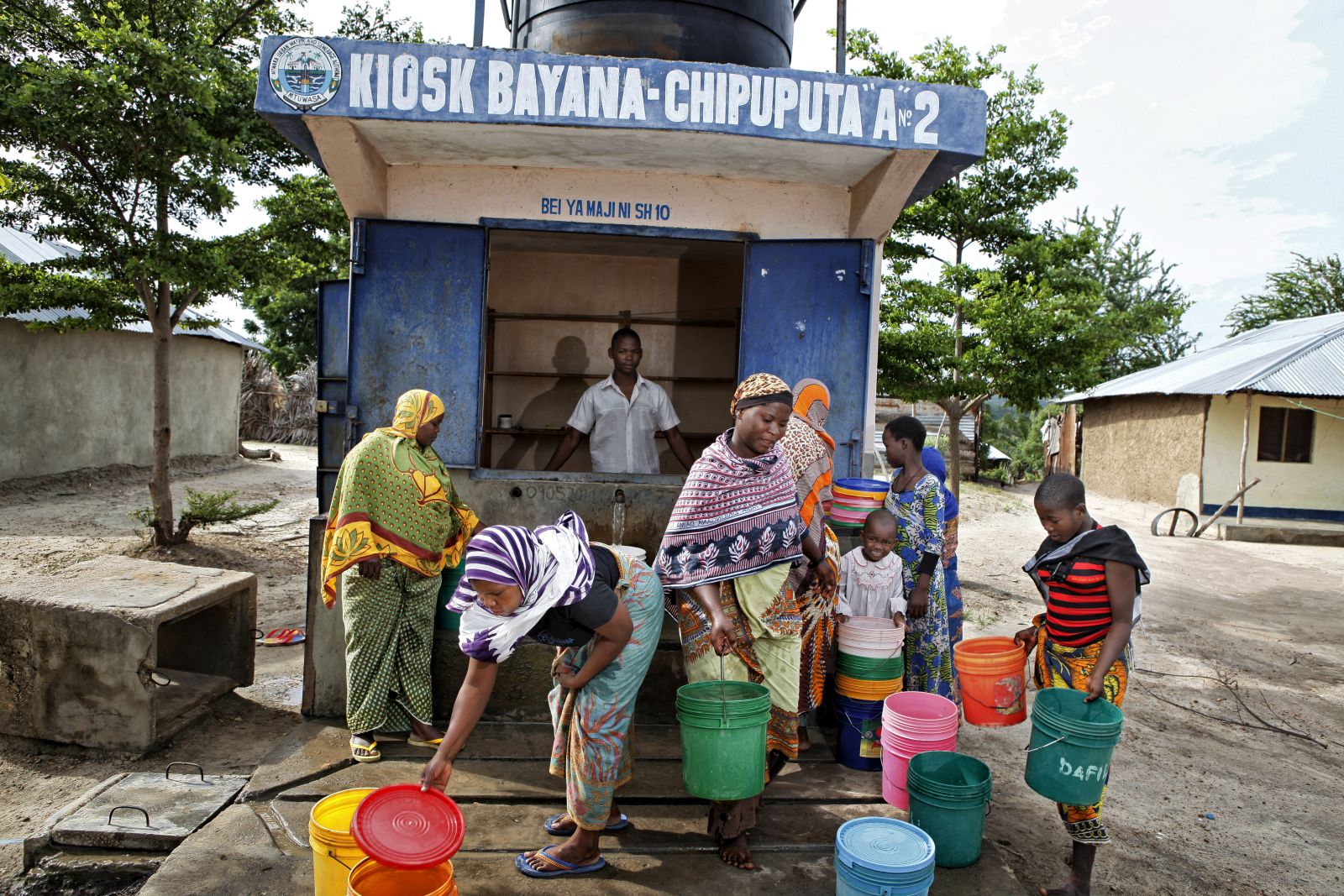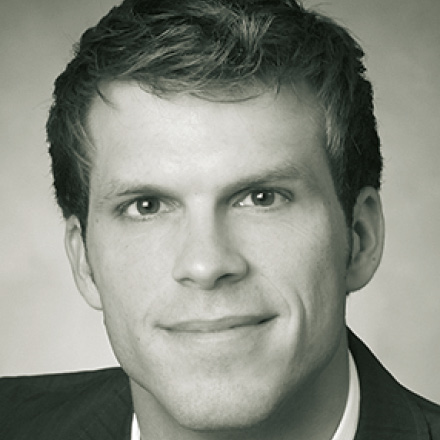Development finance
“This is a marathon”

In regard to the UN Sustainable Development Goals (SDGs), experts speak of an annual financing gap of some $ 2.6 trillion. To put things in proportion: Germany’s gross domestic product amounts to about $ 3.5 trillion. How can the international community close such a huge gap?
One thing is certain: development banks and governments will not be able to provide such huge sums on their own. Therefore, it is very important to mobilise private capital. All countries share an interest in global public goods, such as climate protection, being delivered. Consider India. It has become the world’s number three in terms of carbon emissions, and its economy keeps growing. If we do not cooperate with the fast expanding economies like India, there will be problems that affect everyone on earth. It is a global challenge to make the growth trajectory of these countries sustainable. We have to contribute to ensuring that 1.4 billion Indians will not generate the same level of carbon emissions per capita that we do. That would be the road to climate disaster. Of course, the industrialised countries like ours must make contributions at home too.
How do you ensure sustainability?
Well, first of all we must define what sustainable means – to us and to others. Sustainability is about much more than merely climate protection. My impression, so far, is that people’s understanding still diverges considerably. We need to agree on a shared definition at the EU level. On the other hand, we have ideas of our own at KfW, concerning what criteria make finance sustainable. We want to make sustainability measurable. DEG has already developed methods to measure the developmental impact of the companies it finances (see Tribune section in D+C/E+Z e-Paper 2017/10). This approach does not cover all SDGs yet, but it is an important first step towards documenting and communicating our achievements. We are working on defining indicators of that kind for all KfW operations.
At the UN climate summit in Copenhagen in 2009, industrialised nations promised to make an annual $100 billion available for climate finance in developing countries and emerging markets by 2020. For a long time, it seemed that they would not be able to live up to that pledge. However, last year they actually made about 80 % of the sum available. How did they manage to do that?
The private sector accounts for a huge share of the funding, but in my eyes, the picture still is quite mixed. Many companies have become aware of the growth potential in Africa or Asia, and they are pursuing business interests there, concerning renewable energies, for example. But I think much more must happen. We are still not anywhere close to a scenario that we could call satisfying. My impression is that people in emerging markets increasingly understand the urgency of the matter too. They want to live in a clean environment. In China, for example, climate protection has been making fast progress in recent years. But it still is far from enough.
How do you intend to involve more private-sector companies in these efforts?
Well, the Compact with Africa, which was launched in the context of Germany’s G20 presidency in 2017, is certainly a worthy initiative. Its goals include partnerships at eye level as well as a more enabling environment for trade and investments. We must encourage private investors to overcome their fears regarding our partner countries. They need assistance there. They ask: How do I get market access? What customers will I find? On the other hand, we need to engage with the partner governments and motivate them to create a more trustworthy investment climate. It is their responsibility to achieve that. We Germans cannot hold lectures and simply tell partners how to improve things. It doesn’t work that way. I find it promising that partner governments are telling us with increasing self-confidence how and where we can assist them. The more that happens, the more private-sector investments will be made. Development, however, is not a 100 meter sprint. This is a marathon. We are in it for the long haul.
But the Intergovernmental Panel on Climate Change warns that we must decarbonise the world economy by 2050, and that means reducing emissions by half in the next 12 years …
Yes, but 12 years are a time frame we can utilise. We must make efforts and leverage all instruments at our disposal to make best use of those 12 years. The worst thing would be if we gave up. No, we have not lost the fight. I firmly believe that we can master the tasks ahead of us.
What is the role of DEG, which finances private-sector companies, in this context?
DEG is important, but to see things in proportion, you need to consider the figures. Of the around € 24 billion KfW Group provided for investments abroad in 2017, DEG contributed a mere € 1.6 billion. It is actually not easy to find good private-sector projects. I keep telling our partners that they would be well advised to do more to encourage bankable projects. On the other hand, we must certainly check whether we are operating in the way we should be. Developing countries do not always find cooperation easy. There are lots of different financiers: KfW, the World Bank, the other multilateral development banks, France’s AFD and so on. Every bank has its own rules. We are engaged in defining common standards that would reduce the administrative complexity.
Adding to the complexity, the People’s Republic of China is now disbursing considerable loans, without, so far, showing much interest in harmonisation. What is your view of the new donors’ role?
I don’t think it is very problematic. We just discussed the huge sums we need to achieve the SDGs. In my eyes, the new donors are contributors, not competitors. Our partner countries can make sovereign decisions on whether they want Chinese loans or not. Our preconditions differ from Beijing’s, and so do our ideas concerning how to implement projects. Moreover, we can prove that our approach has advantages …
… for instance in regard to sustainability. Critics point out that many of the projects that China finances in other Asian countries as well as in Africa and Latin America are problematic both in environmental and business terms. Should China become more diligent?
I think every country must assess whether projects are sustainable, both in the business and the environmental sense. That is their responsibility, and if they fail, the consequences will be painful. Our job is to discuss these things with our partners and make them aware of long-term risks. We must do our best to convince them.
What do you prioritise in your capacity as a KfW board member?
We are currently contemplating what development trends to expect until 2025 and in what sense our own business should adapt. We want to accelerate our operations and expect digital technology to prove helpful in this context. For example, we are implementing a first block-chain project in Burkina Faso, with an eye to optimising business processes. Moreover, we think the SDGs are very important, so we want to gear the entire group even more to achieving sustainability. Within KfW Group, international financing will certainly expand. Another thing I am keen on is raising more public awareness for development cooperation. We have to reach out to people and discuss related matters. We want KfW Group to become more transparent, faster and more effective. Finally, we want to take a more holistic approach. In most countries, it is not enough to be involved in a single sector like infrastructure or health care. Projects should have positive impacts on several sectors, and that means that the planners have to consider those sectors right from the start.
Joachim Nagel is a board member of KfW, which is owned by Germany’s Federal Government.
https://www.kfw.de/KfW-Group/About-KfW/Organe-und-Gremien/Vorstand/Dr.-Joachim-Nagel/
Correction, 25.02.2019:
One question in the original version of this interview was too sloppy. It read: “But we only have 12 years left for decarbonisation …” We apologise for the inaccuracy. Nagel’s answer remains correct, he pointed out what action needs to be taken.















